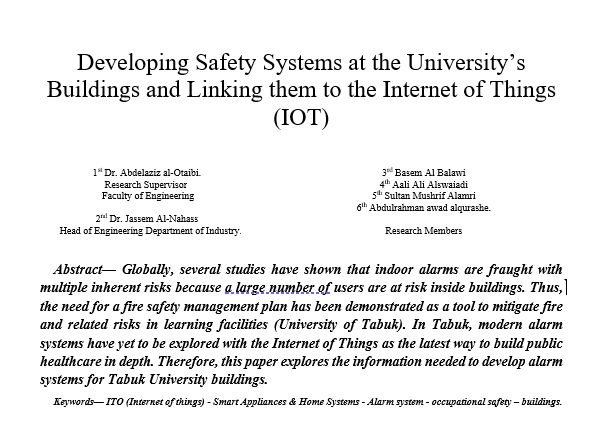
المشاركة المجتمعية في عمليات التخطيط و الموازنة للبلديات في قطاع غزة pdf
ملخص الدراسة:
This study aimed to pinpoint the role of community participation in the planning and budgeting processes in the Gaza Strip municipalities; in addition, this study provided research and analysis for the community participation strategies and discussed its importance. As well as, the research focused on the local councils and local communities attitudes toward the participatory process, and all the benefits and challenges experienced from involving the community in the municipal works. This study also aimed to provide the Palestinian government officials and municipalities with accurate and comprehensive information about participatory planning and budgeting. The followed methodology in this research study was through conducting questionnaire survey. Likert type scale was employed in order to gather perceptions about the research objectives. Since the research was carried out in Gaza Strip seeking the local governments and the local community; neighborhood committees and NGO's, the stratified sampling method was used for determining the simple size for each group. The study findings showed that, for both the planning and budgeting processes, information disclosure strategies were the most practiced strategies, specifically, setting a system to receive citizen's inquiries or appeals, and using news media and publications for disclosing information about municipal plans, budgets and projects, while neighborhood committees, workshops, open meetings were the most used strategies in consulting the local community. Other strategies, shared decision making strategies, public empowerment strategies, were rarely used. The study also revealed that, overall, news media, internet applications, institutional reports, working groups, workshops, focus groups were the most important strategies for the participatory planning process, and workshops, joint committees, neighborhood committees, advisory committees, news media, specialized seminar, and working groups for the participatory budgeting process. The study results also indicated a positive attitude among members of the study sample toward community participation in the municipal planning and budgeting processes. In addition, the results showed that community participation benefits accounted for moderate to low influence in the Gaza Strip municipalities and communities. The most achieved benefits from practicing community participation in the municipal processes were improving decision making process, improving social accountability and responsibility, and creating links between communities and municipalities. Other participation benefits were very weak, which included improving services, gaining economic benefits, achieving benefits to vulnerable groups. The study indicated that shortage of skills was the most significant challenge to community participation, followed by financial challenges, considerable lack of interest and support. The cultural, political and timing challenges were found the least challenges of community participation process. The study findings also showed that capacity building were the top measure for supporting community participation approach and overcoming its local challenges followed by updating public engagement mechanisms and forming community groups to pressure decision making process, activating the election system for LGs councilors, and initiating a separate division inside the municipality to follow up the participatory process. Finally, the study set recommendations for each objective of the study, recommendations included prompting some strategies that were found to be effective by this study e.g. (1) news media, publications, internet applications for information disclosure, (2) workshops, focus groups, beneficiary assessments, open meetings, and neighborhood committees for public consulting, (3) Task forces or working groups, joint committees, and neighborhood committees for making shared decisions, (4) Civil society grants and voluntarism for public empowerment in the planning process. Moreover, due to the weak benefits gained from practiced community participation, it was recommended that the participatory approach should be evaluated according to the benefits achieved, and each benefit found to be ineffective by this study should get a great attention by the city councils. The most important recommendation for the community participation challenges was that trainings for councilors, ward committee members, and the community, should be held and practically focusing on the participation strategies in municipal planning and budgeting processes. Finally the best measures for overcoming those challenges investigated by this study were strongly recommended.
توثيق المرجعي (APA)
خصائص الدراسة
-
المؤلف
Kullab, Ahmed S
-
سنة النشر
2015
-
الناشر:
الجامعة الإسلامية - غزة
-
المصدر:
المستودع الرقمي للجامعة الإسلامية بغزة
-
نوع المحتوى:
رسالة ماجستير
-
اللغة:
English
-
محكمة:
نعم
-
الدولة:
فلسطين
-
النص:
دراسة كاملة
-
نوع الملف:
pdf



